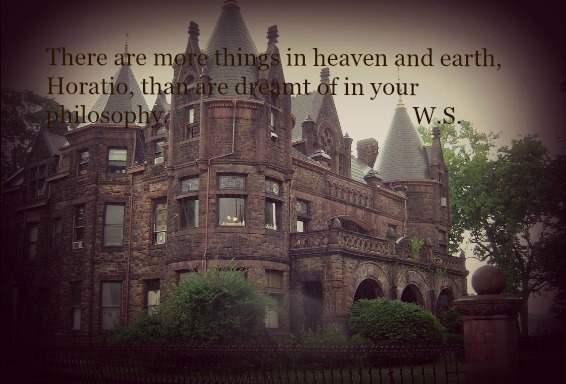Well, I'm not one thing. I doubt you are, either. I don't write one kind of fiction. I don't read one kind. I am as invested in my gardens as I am in my writing. Cooking, too. I never expected my writing t bring me wealth, any more than I expected that of the gardens I've created.
People who walk by when I'm in the yard stop to tell me it's lovely, that they walk by just to see it. Prettiest in the neighborhood. One woman drives to this neighborhood for her walks just to see my yard. That's gratification enough. To share my vision and have someone say, wow, terrific. Well done.
That's all I want from my writing, too. Sure, having a book on the NYT top 10 wouldn't hurt my feelings. Who wouldn't love it? Promote the hell out of it? Absolutely. But I don't need it.
I create because I love the doing of it. I love rearranging words to see what fits best where. I love doing the same with my landscape. Often things that promised beauty turn out not to work, must be edited out or moved. A paragraph, an image, a shrub or perennial, stunted, obtrusive in one spot, thrives as a coherent element in another.
Raised Presbyterian, I eventually discovered The Tibetan Book of the Dead, read the Tao Te Ching, consulted the I Ching and runes, and delved into various mystical branches of many world religions. Who knows what is legend and what is history? Or what comes from enlightenment and what springs from wishful thinking?
With age comes perspective. Every faith believes itself to be the one true path to God, but none can pin down who or what "God" is. Certainly not some bearded wielder of lightning bolts or judgments. I've stopped trying to understand. I accept that I can't know. I can't even know if there's a greater Force permeating all creation. I still kinda tend to think maybe. There's just too much that can't be explained.
Each religion has branded what that is, that concept of original universal creative intelligence, whether called The Way, or God, or Allah, or Yahweh. I can't even say for sure there is one, though I'll hedge my bet. If there is, great, if not, I'll never know. So I choose to live as if it's true, but, as this invocation puts it so well, "in the names of the one who is all love."
Okay, pretty huge jump there, from me and writing and gardening to the mysteries of the universe, and I don't intend to get all religious. But, you know what? It's not really such a leap. Those mysteries inform my writing, my work with my little patch of earth, and every act of creation, however small.
There are hundreds, more, who can instruct on the craft of writing with far more authority than I, or on the ins and outs of publishing. I'll certainly bring up things I see that make me fucking nuts, or that make me need to share the beauty, or the absurdity, or whatever.
I am a writer. I work the earth. I'm fascinated by all aspects of creation. That could be writing as a craft, storytelling, the art of scaring the shit out of you by turning something everyday, something you cherish, into something that might take your soul, eat your children, and turn you into the monster. It could be a miraculous virgin birth as the cover for as miraculous an alien intervention.
So where does that put me? A perpetually skeptical spiritual explorer. Let there be Light, yeah, but those dark places sure are intriguing, aren't they? What's that around that corner? Was it human? Is it here to save us or destroy us?
Let me go into the garden and think about it while I move a few hostas. There's magic the the rearrangement of plants. And words. And body parts.
Damn. I haven't narrowed me down! Guess I'll have to live with who I am. And I'm okay with that.
We are creators, but are we what we create? How do you see the acts of creation?


